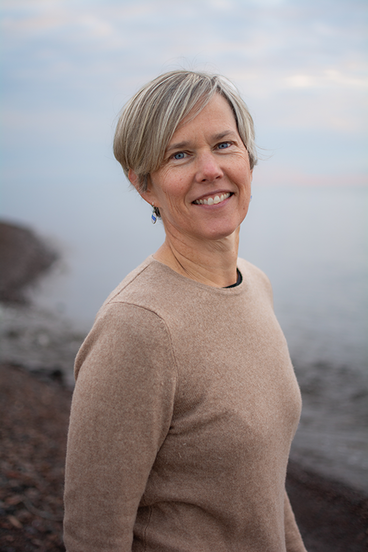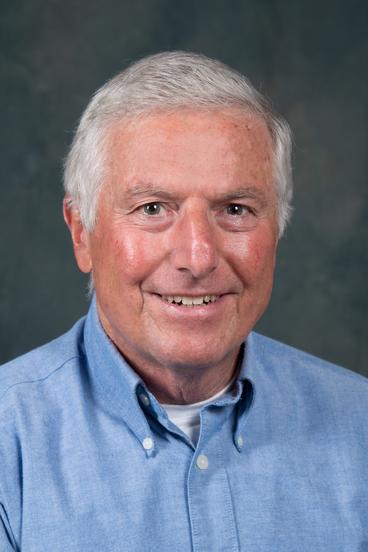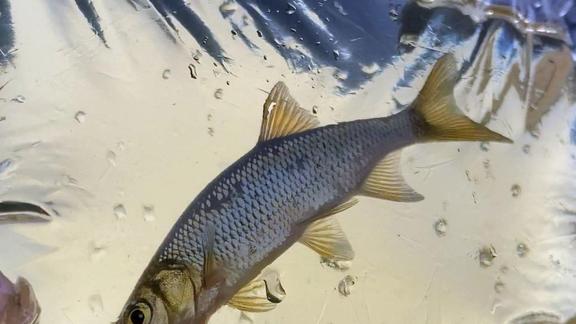The University of Minnesota Sea Grant (MNSG) program and partners are investigating new strategies for producing Golden Shiner fish for Minnesota’s bait industry. The project is supported by a three-year $188,000 grant from the Legislative-Citizen Commission on Minnesota Resources.
+
What are Golden Shiner and why are they important?
The Golden Shiner (Notemigonus crysoleucas) is a minnow in the cyprinid family that is native to eastern North America.
In Minnesota, demand for Golden Shiners (Notemigonus crysoleucas) used as bait exceeds in-state production. Recent projections by bait dealers estimate a deficit of approximately 10,000 gallons of Golden Shiner annually. There is pressure from anglers, bait dealers, and legislators to import them from other states. However, importation can introduce aquatic invasive species such as invasive carps and fish diseases, which can negatively impact state waters and jeopardize valuable native fish species. Golden Shiner are also an excellent candidate for indoor production because they are a hardy fish, spawn multiple times a year, and their spawning times can be manipulated by adjusting water temperature and lighting conditions.
+
Project description
Why Are Golden Shiner Important?
In Minnesota, demand for Golden Shiner (Notemigonus crysoleucas) used as bait exceeds in-state production. Recent projections by bait dealers estimate a deficit of approximately 10,000 gallons of Golden Shiner annually. There is pressure from anglers, bait dealers, and legislators to import them from other states. However, importation can introduce aquatic invasive species such as invasive carps and fish diseases, which can negatively impact state waters and jeopardize valuable native fish species. Golden Shiner are also an excellent candidate for indoor production because they are a hardy fish, spawn multiple times a year, and their spawning times can be manipulated by adjusting water temperature and lighting conditions.
The goal of the project is to increase production of Golden Shiner for bait in Minnesota. The objectives of the project are to (1) identify and demonstrate the best methods for in-state production of Golden Shiner and (2) communicate findings and recommendations to commercial bait producers by publishing a project report, a production (how-to) manual, and holding three workshops to transfer results of this project. Published materials will be made available through this website.
The project started during the Fall of 2021 and will be completed by June 30, 2024.
What Are The Project Strategies?
The project team will demonstrate and evaluate the following four strategies that could increase in-state production of Golden Shiner:
- Intensive rearing of Golden Shiner, all indoors, using a recirculating aquaculture system (RAS).
- Using Golden Shiner in an aquaponics (plants + fish) system, similar to RAS, but with the added benefit of growing plants.
- Growing Golden Shiner by stocking constructed dug ponds with newly hatched sac-fry (~1/4 inches) in May and harvesting in October.
- Producing feed-trained Golden Shiner indoors to a size of 1-2 inches, then stocking them into constructed ponds in May to grow out with the anticipation of harvesting market sized fish in October.
Benefits of Indoor Production?
Producing Golden Shiner bait fish in indoor facilities, entirely or partially, extends their growing period, which enables them to reach marketable size in 9 months or less. Indoor production also avoids the high mortality and slow growth that result from overwintering Golden Shiner in natural outdoor ponds.
+
Why Minnesota Sea Grant?
Minnesota Sea Grant (MNSG) staff were asked to assist with the planning and implementation of the Golden Shiner project by members of the bait industry and the Minnesota Department of Natural Resources. The skills and expertise of MNSG fisheries and aquaculture staff ensure that they are well positioned to coordinate the project and address stakeholders concerns while also protecting Minnesota’s natural resources.
+
What have we done lately?
- August 2024: The Golden Shiner project team continues to
meet monthly. - August 2024: Golden Shiner samples, water quality and feed
data continue to be collected. - August 2024: Several producers have shown interest in this
project and inquired about applying the initial results on a commercial scale.
Conversations with these groups continue. - August 2024: Survival and growth results are being analyzed
and finalized from year two (2023) for all strategies. Preliminary results indicate
that overall growth in year two appears to have increased in most strategies
compared to year one. - Spring 2024: All anticipated fry and feed trained fry needs were met, and
fish were stocked. - April 2024: The first group of Golden Shiner reared at the Central Lakes College
(CLC) aquaponics facility were harvested with the help of students and provided
encouraging results for this strategy. - January 2024 - July 2024: MNSG made field visits to view facilities, collect
data, harvest fish, discuss potential project modifications and monitor progress. - January 2024: A second group of Golden Shiner was started at the Central
Lakes College (CLC) aquaponics facility. - January 2024: The Golden Shiner project was highlighted in the January 2024
Minnesota Department of Natural Resources report to the Minnesota legislature.
The report describes options to increase bait production in Minnesota. - Winter 2024: The project entered its third and final field
season.
+
Participants & audience
The Minnesota Sea Grant Golden Shiner project seeks to serve the bait industry, aquaculture and aquaponics producers and anglers in Minnesota and the Great Lakes region.
Project collaborators include Barry Thoele, owner of Lincoln Bait and Barry's Cherries Hydroponic Produce; Marc Tye, owner of Tye Fish Solutions; and the Minnesota Department of Natural Resources, Section of Fisheries.
+
Funding
Minnesota Sea Grant's Golden Shiner project is funded by a $188,000 Legislative-Citizen Commission on Minnesota Resources (LCCMR) grant from the Environment and Natural Resources Trust Fund that was awarded in the fall of 2021.
Funding for this project was provided by the Minnesota Environment and Natural Resources Trust Fund as recommended by the Legislative-Citizen Commission on Minnesota Resources (LCCMR). The Trust Fund is a permanent fund constitutionally established by the citizens of Minnesota to assist in the protection, conservation, preservation, and enhancement of the state’s air, water, land, fish, wildlife, and other natural resources.
+
Project history
2023
- October 2023: Minnesota Sea Grant produced a video that provides an overview of the project Increasing Golden Shiner Bait Production in Minnesota and the four different strategies being investigated to produce Golden Shiner in state.
- October 2023: The Golden Shiner project team continues to meet monthly and a number of field visits were made by Minnesota Sea Grant staff over the summer to view facilities, collect data, discuss potential project modifications and monitor progress.
- October/November 2023: Survival and growth of Golden Shiner from all strategies appears to be good and the Golden Shiner project team anticipates harvest of ponds and tanks to estimate survival and production.
- October 2023: A number of minor modifications continue to be initiated in an attempt to increase both survival and growth of Golden Shiner based on what was learned last year (2022). Experimentation with feed, feeders, and methods to remove fish from ponds have been explored.
- October 2023: A presentation summarizing the Golden Shiner project and the 2022 outcomes was provided to Minnesota bait dealers at a meeting hosted by the Minnesota Department of Natural Resources.
- August 2023: A presentation that highlighted the partnerships developed in conducting the Golden Shiner project, and how those partnerships are leading to increased acceptance of aquaculture in the state was presented at the National Meeting of the American Fisheries Society.
- Summer 2023: A number of field visits were made by Minnesota Sea Grant staff over the summer to view facilities, collect data, discuss potential Golden Shiner project modifications and monitor progress.
- Summer 2023: Sampling continued from all four strategies throughout the summer of 2023, to monitor water quality, temperature and growth of Golden Shiner.
- The Increasing Golden Shiner Bait Fish Production in Minnesota project team anticipates harvest in late October early November 2023 with sampling occurring throughout the rest of the summer 2023, to monitor water quality and growth of Golden Shiner.
- July 2023: The Increasing Golden Shiner Bait Fish Production in Minnesota project team continues to meet monthly and a number of field visits were made by Minnesota Sea Grant staff to view facilities and progress over the last month.
- April/May 2023: All Golden Shiner sac fry and feed trained fry were distributed from the hatchery to the various grow out facilities. All stocked Golden Shiner appear to be surviving and growing well at all facilities.
- A number of minor modifications have been made this year (2023) in an attempt to increase both survival and growth of Golden Shiner based in what was learned last year (2022).
- April 2023: The Increasing Golden Shiner Bait Fish Production in Minnesota project team continues to meet monthly to coordinate and plan activities to develop the four strategies involved in this project.
- Golden Shiner broodstock was collected from wild stock in Minnesota and successful year-round. Spawning continues at the Tye Fish Solutions hatchery in Le Sueur, Minnesota, which is the source of all larval Golden Shiner for this project.
- Strategy 1: Rearing Golden Shiner in a recirculating aquaculture system (RAS).
- This strategy is being demonstrated at Tye Fish Solutions. The first group of Golden Shiner reared in the RAS were harvested in early February 2023, seven months after they were hatched. Data on total production, survival, and growth was collected. Survival and growth were both good with approximately 82% of the Golden Shiners exceeding 64 mm or ~2.5 inches and 33% exceeding 76 mm or ~3.0 inches.
- Another RAS cohort will be started in late spring/early summer 2023.
- Strategy 2: Aquaponics (plants + fish) system.
- This strategy was initiated on a trial basis in spring 2022, and was officially initiated on February 7, 2023, when ~4,500 feed trained fry were transferred from Tye Fish Solutions to the aquaponics facility at Central Lakes College (CLC) in Brainerd, Minnesota.
- The fry have transitioned from a diet of rotifers to a dry diet and are growing well, with minimal mortality. Plants have been added to the system and water is being routed from the fish tanks into plant racks. The aquaponics system will be monitored (both fish and plant production) with an expected fish harvest date in early October 2023.
- Strategies 3 and 4: Stocking and grow-out in constructed ponds with sac fry (strategy 3) and feed trained fry (strategy 4).
- These strategies were completed in late October/early November 2022. Fish were harvested and data on production and growth was collected and analyzed. Survival was good, and initial growth results were encouraging with the percentage of fish > 64 mm (~2.5 inches) ranging from 11% to 50% and the percentage of fish > 76 mm (~3.0 inches) ranging from 3% to 32%.
- Golden Shiner are presently being reared at Tye Fish Solutions hatchery for stocking in late May/early June 2023, depending on water temperatures.
- Based on the information gained over the 2022 growing season a number of changes are being made to determine if additional growth can be achieved in 2023.
- February 2023: Three members of the Increasing Golden Shiner Bait Fish Production in Minnesota project team gave presentations about the project at the jointly hosted Wisconsin-Minnesota Aquaculture Association meeting.
2022
- The Increasing Golden Shiner Bait Fish Production in Minnesota project team continued to meet monthly in 2022 to coordinate and plan activities to develop the four strategies involved in this project.
- Golden Shiner broodstock were collected from wild stock in Minnesota and successful spawning occurred at the Tye Fish Solutions hatchery which is the source of larval Golden Shiner for this project.
- Strategy 1: Rearing Golden Shiner in a recirculating aquaculture system (RAS).
- This strategy is being demonstrated at Tye Fish Solutions.
- In July 2022, 5,400 sac fry began feed training and were being reared to market size (~3-5 inches) in a RAS system.
- As of early December 2022, survival has been good and fish length averages about ~2.5 inches. We anticipate most fish will reach market size in early February 2023 for a seven month growing season. Data is being collected during the grow-out period.
- Strategy 2: Aquaponics (plants + fish) system.
- This strategy was initiated on a trial basis in spring 2022.
- The Increasing Golden Shiner Bait Fish Production in Minnesota project team is excited to report that the aquaponics program located at the Central Lakes College in Brainerd, Minnesota, is interested in partnering on the project. The team anticipates providing feed trained fry to their program in early 2023 to further develop the aquaponics strategy.
- Strategies 3 and 4: Stocking and grow-out in constructed ponds with sac fry (strategy 3) and feed trained fry (strategy 4).
- Constructed grow-out ponds were procured for the project with both Lincoln Bait and the Minnesota Department of Natural Resources (MNDNR). Two ponds and two large tanks are located at the Lincoln Bait facility in Staples, Minnesota, and one large MNDNR rearing pond is being used in New London, Minnesota. Survival was documented in all stocked ponds and samples were collected over the summer and fall of 2022.
- Data is being analyzed and preliminary results indicate that a small portion of the fish sampled for these two strategies are at or very near market size with the majority of fish being just below market size.
- Based on the information gained over the 2022 season the Increasing Golden Shiner Bait Fish Production in Minnesota project team will meet with project partners to make plans for the 2023 growing season.
Program Staff
Program News
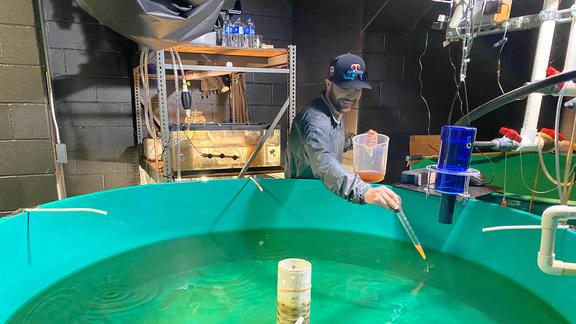
Application Period is Open - Deadline April 14, 2024
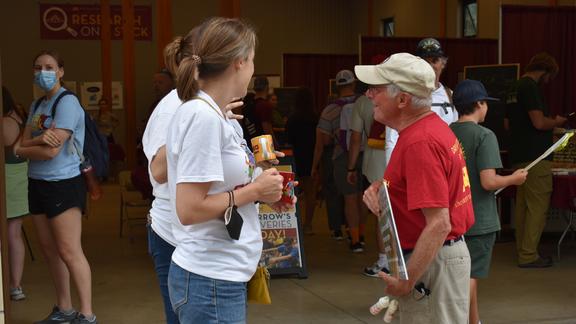
Staff from Minnesota Sea Grant Fisheries and Aquaculture Program will be presenting recent and ongoing projects that addres
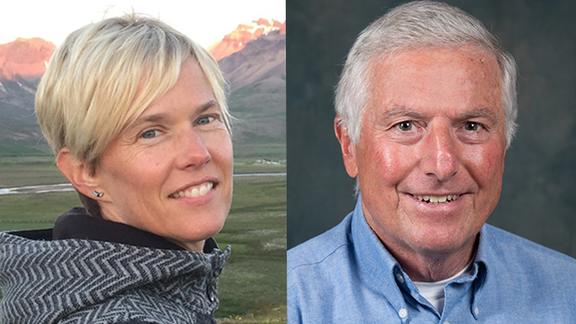
Minnesota Sea Grant extension educators will be presenting at the 153rd Annual Meeting of the American Fisheries Society, August 20-24, 2023, i
Featured Stories
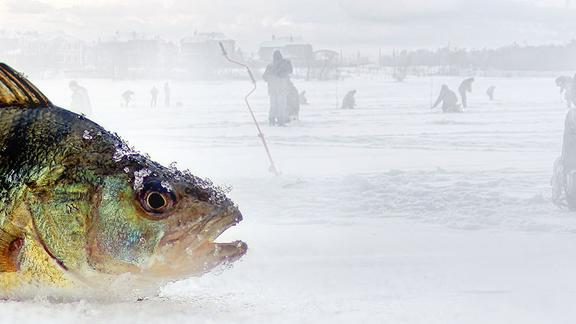
Our three-part March Extension Column highlights Minnesota Sea Grant's annual fisheries and aquaculture student award, project presentations and updates.
Image credit: ©kremldepall - stock.adobe.com
Partners
- Tye Fish Solutions, Industry and Business
Media Mentions
- A crop of golden shiners Brainerd Dispatch
- Wisconsin and Minnesota Aquaculture Conference Perfectduluthday
- WI-MN Aquaculture Conference Hooks Fish Farmers Morning AgClips
- Minnesota Sea Grant Co-Hosts Great Lakes Fish Farm Session Morning AgClips
- Minnesota's live bait trappers battle severe shortage, worry about what the fut… Star Tribune
